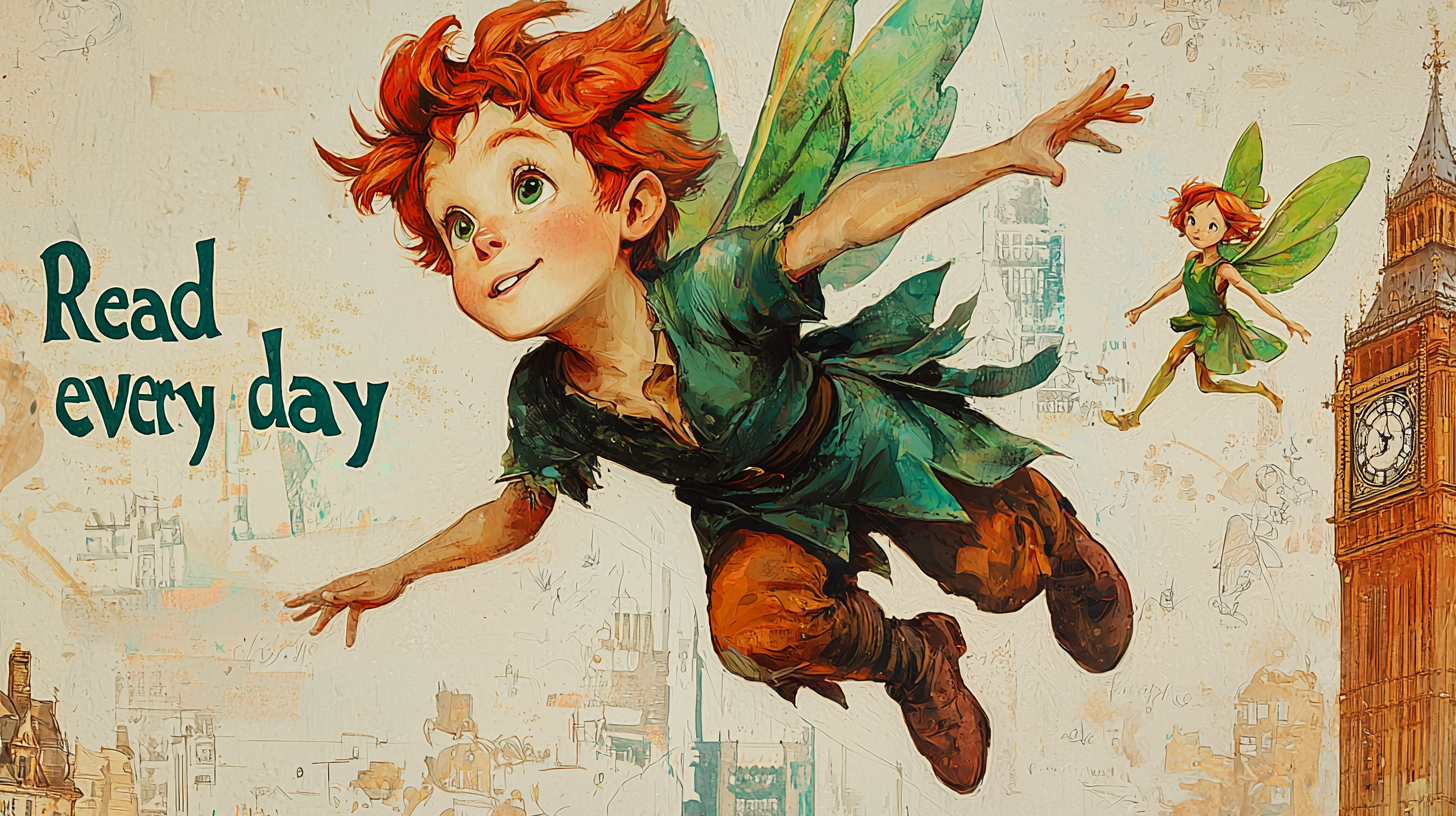Peter Pan and Tinker Bell soared gracefully through the night sky, the stars twinkling brightly around them."I've never seen the stars so closely before," Peter exclaimed excitedly.Tinker Bell smiled warmly."They are truly beautiful, aren't they?" she replied softly.They ascended higher, the cool air whispering gently past them.The moon shone luminously, casting a silvery glow on everything below."Look over there," Tinker Bell pointed eagerly."That's the North Star. It always shines brightly to guide travelers."Peter gazed intently at the star."It's incredibly bright," he noted appreciatively.Tinker Bell nodded."Yes, and if you follow it carefully, it can lead you safely home."They floated peacefully among the constellations, each star shining brilliantly."Do you know the stories behind the stars?" Tinker Bell asked curiously."Not really," Peter admitted honestly."I'd love to learn about them."Tinker Bell clapped her hands happily."Wonderful! Let me tell you some tales."She pointed gracefully to a cluster of stars."That is Orion, the great hunter. He bravely roamed the skies, searching endlessly for adventure."Peter listened attentively, his eyes shining brightly."He sounds a lot like me," he said playfully.Tinker Bell giggled lightly."Perhaps," she agreed."And over there is Cassiopeia. She was a queen who loved herself immensely.""Why is she sitting upside down?" Peter asked curiously."Legend says she was placed in the sky as a lesson in humility," Tinker Bell explained wisely.They continued flying slowly, the stars surrounding them like a sparkling sea."The universe is endlessly fascinating," Peter remarked thoughtfully."There's so much to learn."Tinker Bell nodded enthusiastically."Exactly! Exploring helps us understand the world more deeply."Peter smiled gratefully at her."Thank you for sharing these stories with me," he said sincerely."I'm truly enjoying this.""I'm glad," she replied happily."Learning can be wonderfully fun."They spent the rest of the night discovering new constellations, Tinker Bell explaining each one patiently.The time passed quickly, and Peter felt increasingly inspired."I never knew the stars held so many secrets," he mused quietly."There's always more than meets the eye," Tinker Bell agreed softly.As dawn approached slowly, the stars began to fade gently."We should probably head back," Tinker Bell suggested reluctantly."I suppose you're right," Peter agreed, albeit unwillingly.They descended carefully, the world below awakening gradually."Tonight was absolutely amazing," Peter declared joyfully."I can't wait to explore more.""And we will," Tinker Bell promised kindly."There's always something new to discover."They landed softly on a cloud, watching as the sun rose slowly over the horizon.Peter felt deeply content."The joy of learning is truly wonderful," he said thoughtfully.Tinker Bell smiled warmly."Yes, it is," she agreed."And sharing it makes it even better."







